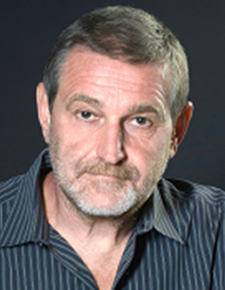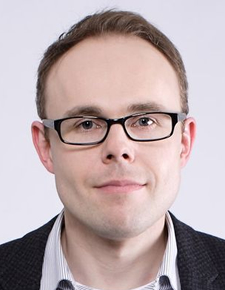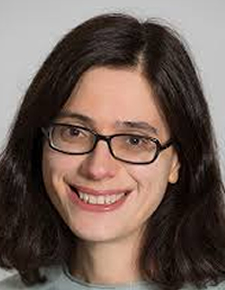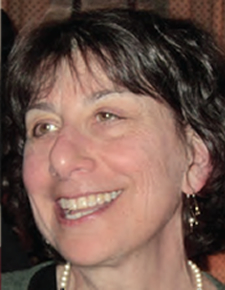
|
|||||||||
| MARCHES | |||||||||
| ABOUT THE MARCH |
|||||||||
| PRINCIPLES & GOALS | |||||||||
|
|
"We join together as scientists and supporters of science to embody the importance of partnerships formed between scientists and the broader community. Science works best when scientists share our findings with and engage the communities we serve in shaping, sharing, and participating in the research process."
Find your local March today & get involved!

If you know of a march not listed or are interested in starting a march in your area, please reach out to

|
Join Us! Mark your calendars! |
||
| SUBMISSIONS | ||
| REGISTRATION | ||
| PROGRAM | ||
| KEY DATES | ||
| TRAVEL INFORMATION | ||
Share your High Quality, Original Research - Submit a Poster to GLBIO 2017!
Deadline: March 27
A wide definition and inclusion of bioinformatics/computational biology will be considered, and topics of interest include the following:

|
|||||||||
| SUBMISSIONS | |||||||||
| KEYNOTE SPEAKERS |
|||||||||
| CONFERENCE INFORMATION |
|||||||||
| CONFERENCE SCHEDULE |
|||||||||
| CONFERENCE HOTEL |
|||||||||
| EXHIBITORS & SPONSORS | |||||||||
|
|
ISMB/ECCB 2017 invites Abstract submissions - previously Highlights & Late Breaking Research - to shape the scientific content of this dynamic conference!
Talks will be organized according to scientific topics which are covered by the 13 Communities of Special Interest (COSIs):
If the topic of your submission falls outside the COSI groups, topics on emerging issues within the field should submit under "Other Topics."
Don’t miss your chance to discover, innovate and connect!

The International Society for Computational Biology (ISCB) has elected eight deserving scientists as Fellows of the ISCB. The ISCB Fellows program honors members that have distinguished themselves through outstanding contributions to the fields of computational biology and bioinformatics. The ISCB Fellows Class of 2017 comprises:
These individuals will be recognized for their contributions to computational biology and bioinformatics at the ISCB members meeting on July 24, 2017, during the Society’s 25th Anniversary annual international conference on Intelligent Systems for Molecular Biology (ISMB) in Prague, Czech Republic. They will receive a certificate and a pin as a symbol of their distinguished accomplishments.
The elected individuals will be part of the ISCB fellow class that increases now to 64 members (www.iscb.org/iscb-fellows).
The outcome of this year’s election is presented with tremendous pride. “ISCB Fellows represent the absolute pillars of our community,” stated Alfonso Valencia, ISCB President. Each of these very accomplished researchers has made exceptional contributions to the ISCB’s mission to advance the scientific understanding of living systems through computation. Valencia continued, “ISCB Fellows are an increasingly active group of the Society, driving the scientific excellence of our field and opening new avenues to our community.”
According to Bonnie Berger, 2017 ISCB Fellows Selection Committee, Chair, “the ISCB Fellows represent the full range of our field, from contributions that are fundamental to computation to those that reveal novel biology through computationally-minded analyses. We hope to further emphasize diversity of research, gender, and geography next year.”
Congratulations, 2017 Class of Fellows!

The International Society of Computational Biology (ISCB) is pleased to announce the winners of the 2017 Accomplishments by a Senior Scientist Award, Overton Prize, Innovator Award, and Outstanding Contributions to ISCB Award. Pavel Pevzner, Ronald R. Taylor Professor of Computer Science, University of San Diego; Director, NIH Center for Computational Mass Spectrometry; and HHMI Investigator, is the winner of the Accomplishments by a Senior Scientist Award. Christoph Bock, Research Center for Molecular Medicine of the Austrian Academy of Sciences (CeMM), is the Overton Prize winner. Aviv Regev, Professor of Biology, MIT; core member, Broad Institute of MIT and Harvard; and HHMI Investigator, is the winner of the ISCB Innovator Award. Fran Lewitter, Founding Director, Retired, Bioinformatics and Research Computing Department, Whitehead Institute for Biomedical Research, has been selected as the winner of the Outstanding Contributions to ISCB Award.
 Pavel Pevzner
Pavel Pevzner
Recipient of ISCB Accomplishments by a Senior Scientist Award
The ISCB Accomplishments by a Senior Scientist Award recognizes leaders in the fields of computational biology and bioinformatics for their significant research, education, and service contributions. Pavel Pevzner is being honored as the 2017 winner of the Accomplishment by a Senior Scientist Award.
Pavel A. Pevzner is the Ronald R. Taylor Professor of Computer Science and Director of the NIH Center for Computational Mass Spectrometry at University of California, San Diego where he is an HHMI Institute Professor. Renewing his Russian origins, he founded the Center for Algorithmic Biotechnology at Saint Petersburg State University and serves as a member of the advisory board for SkolTech in Moscow. There are few sub-fields in Bioinformatics where Pevzner has not made a seminal contribution. His work is guided by applying combinatorial and algorithmic ideas to solving problems in bioinformatics, most notably in genome rearrangements, fragment assembly, and algorithmic mass spectrometry. His algorithmic ideas have been incorporated into many of the tools in the field. Not only is he a world leader in algorithmic genomics and proteomics, he has also pioneered the reverse classroom in bioinformatics education through his textbook and efforts at UCSD, HHMI and RECOMB-BE. Pevzner is a founding member of RECOMB, has served on the ISCB board of directors, and serves on several editorial boards.
Pevzner received his Ph.D. in Mathematics and Physics from the Moscow Institute of Physics and Technology. He joined Michael Waterman's laboratory in 1990 at the Department of Mathematics at the University of Southern California for two years as a postdoctoral research associate. In 1992, Pevzner took a position of an Associate Professor at Pennsylvania State University. In 1995, he moved back to the University of Southern California as a Professor of Mathematics, Computer Science, and Molecular Biology. In 2000, he moved to UCSD.
 Christoph Bock
Christoph Bock
Recipient of the ISCB Overton Prize
The Overton Prize recognizes the research, education, and service accomplishments of early to mid-career scientists who are emerging leaders in computational biology and bioinformatics. The Overton Prize was instituted in 2001 to honor the untimely loss of G. Christian Overton, a leading bioinformatics researcher and a founding member of the ISCB Board of Directors. Christoph Bock is being recognized as the 2017 winner of the Overton Prize.
Christoph Bock is a CeMM Principal Investigator, visiting Professor at the Medical University of Vienna, and Coordinator of the Biomedical Sequencing Facility. He is recognized for being a rising star in epigenetic data analysis.
Bock completed his PhD at the Max Planck Institute for Informatics in Saarbrücken (Germany), and was a postdoctoral fellow with Alexander Meissner at the Broad Institute and the Harvard Department for Stem Cell and Regenerative Biology. He joined CeMM as a principal investigator in 2012, and he coordinates the next generation sequencing activities of CeMM and the Medical University of Vienna.
 Aviv Regev
Aviv Regev
Recipient of ISCB Innovator Award
2016 marked the launch of the ISCB Innovator Award, which is given to a leading scientist who is within two decades of receiving her or his PhD degree, has consistently made outstanding contributions to the field and continues to forge new directions. Aviv Regev is the 2017 winner of the ISCB Innovator Award.
Aviv Regev, a computational and systems biologist, is a professor of biology at MIT, a Howard Hughes Medical Institute Investigator, and the Chair of the Faculty and the Director of the Klarman Cell Observatory and Cell Circuits Program at the Broad Institute. She studies the molecular circuitry that governs the function of mammalian cells in health and disease and has pioneered many leading experimental and computational methods for the reconstruction of circuits, including in single-cell genomics.
Regev received her M.Sc. from Tel Aviv University, studying biology, computer science, and mathematics in the Interdisciplinary Program for the Fostering of Excellence. In 2002, she received her Ph.D. in computational biology from Tel Aviv University.
 Fran Lewitter
Fran Lewitter
Recipient of ISCB Outstanding Contributions Award
The Outstanding Contributions to ISCB Award recognizes an ISCB member for her or his outstanding service contributions toward the betterment of ISCB through exemplary leadership, education, and service.
This award debuted in 2015, and the 2017 winner is Fran Lewitter.
Fran Lewitter, Founding Director, Retired, Bioinformatics and Research Computing Department, Whitehead Institute for Biomedical Research, has championed bioinformatics education on behalf of ISCB through many years of service. As a member of the ISCB board of directors, she has advocated for the inclusion and consideration of bioinformatics educational activities in conference programming, community activities, in written publications and created dedicated webpages for educational resources. Her tireless efforts to grow the field of bioinformatics and computational biology through education has greatly benefited ISCB and the field at large.
_______________________________________________________
ISCB will present the Accomplishments by a Senior Scientist Award, Overton Prize, Innovator Award and Outstanding Contributions to ISCB Award, at ISMB/ECCB 2017 (www.iscb.org/ismbeccb2017), which is being held in Prague, Czech Republic on July 22-25, 2017. Pevzner, Bock, and Regev will also present keynote addresses during the conference.
Full bibliographical articles profiling the award recipients will be available in the ISMB/ECCB 2017 focus issue of the ISCB newsletter later this year, as well as the ISCB Society Pages in PLOS Computational Biology, OUP Bioinformatics, and ISCB Community Journal.